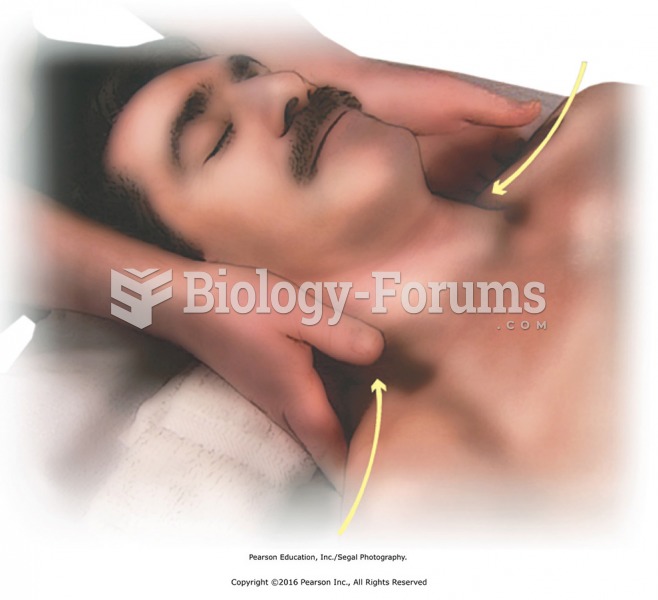|
|
|
The term bacteria was devised in the 19th century by German biologist Ferdinand Cohn. He based it on the Greek word "bakterion" meaning a small rod or staff. Cohn is considered to be the father of modern bacteriology.
Patients who cannot swallow may receive nutrition via a parenteral route—usually, a catheter is inserted through the chest into a large vein going into the heart.
A seasonal flu vaccine is the best way to reduce the chances you will get seasonal influenza and spread it to others.
The types of cancer that alpha interferons are used to treat include hairy cell leukemia, melanoma, follicular non-Hodgkin's lymphoma, and AIDS-related Kaposi's sarcoma.
Common abbreviations that cause medication errors include U (unit), mg (milligram), QD (every day), SC (subcutaneous), TIW (three times per week), D/C (discharge or discontinue), HS (at bedtime or "hours of sleep"), cc (cubic centimeters), and AU (each ear).
 Patients should be encouraged to bring to their health care visit all the substances that they take,
Patients should be encouraged to bring to their health care visit all the substances that they take,
 Effleurage with fingertips to tops of both shoulders and neck. Feel for which side is most tense and ...
Effleurage with fingertips to tops of both shoulders and neck. Feel for which side is most tense and ...





